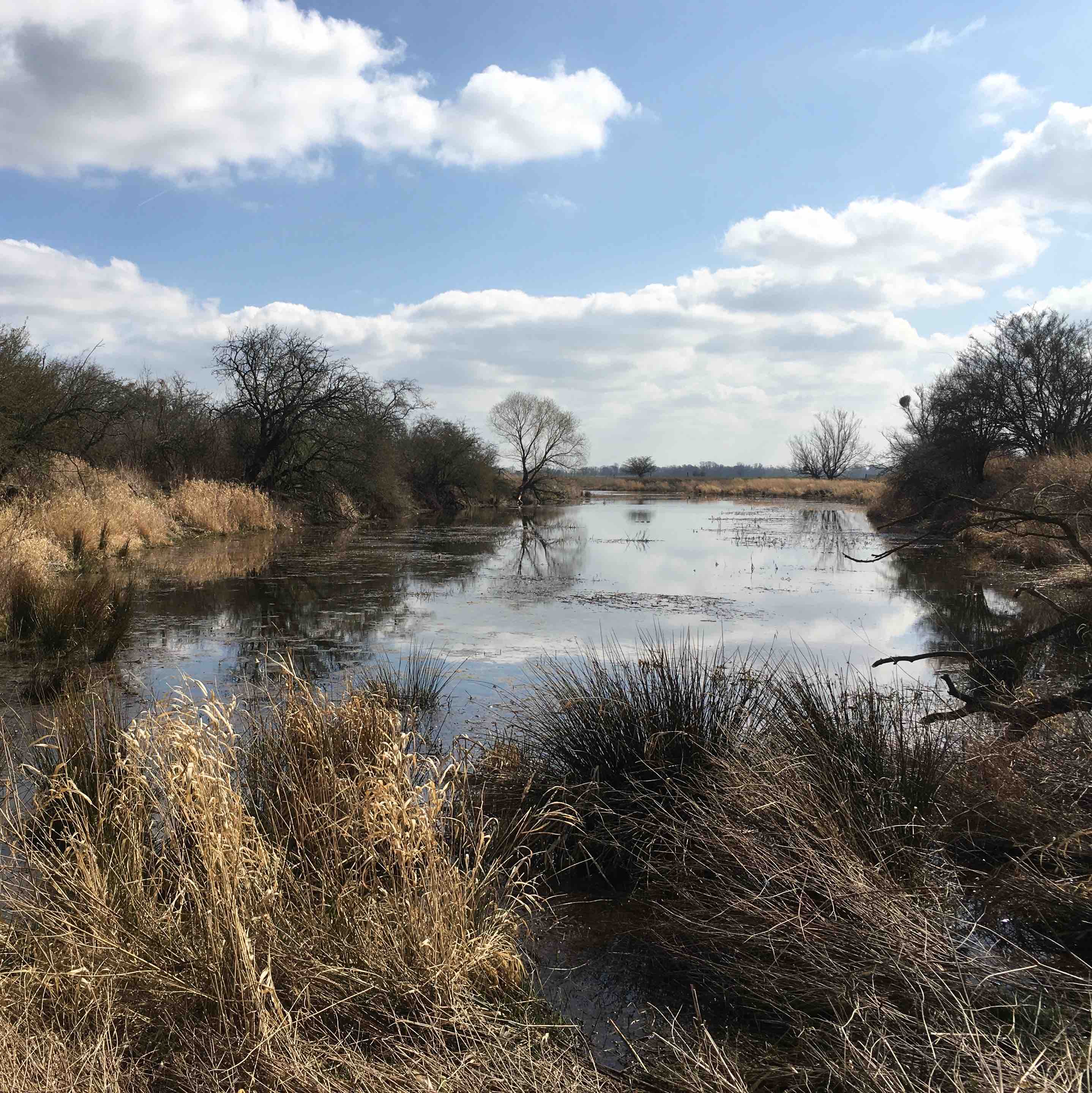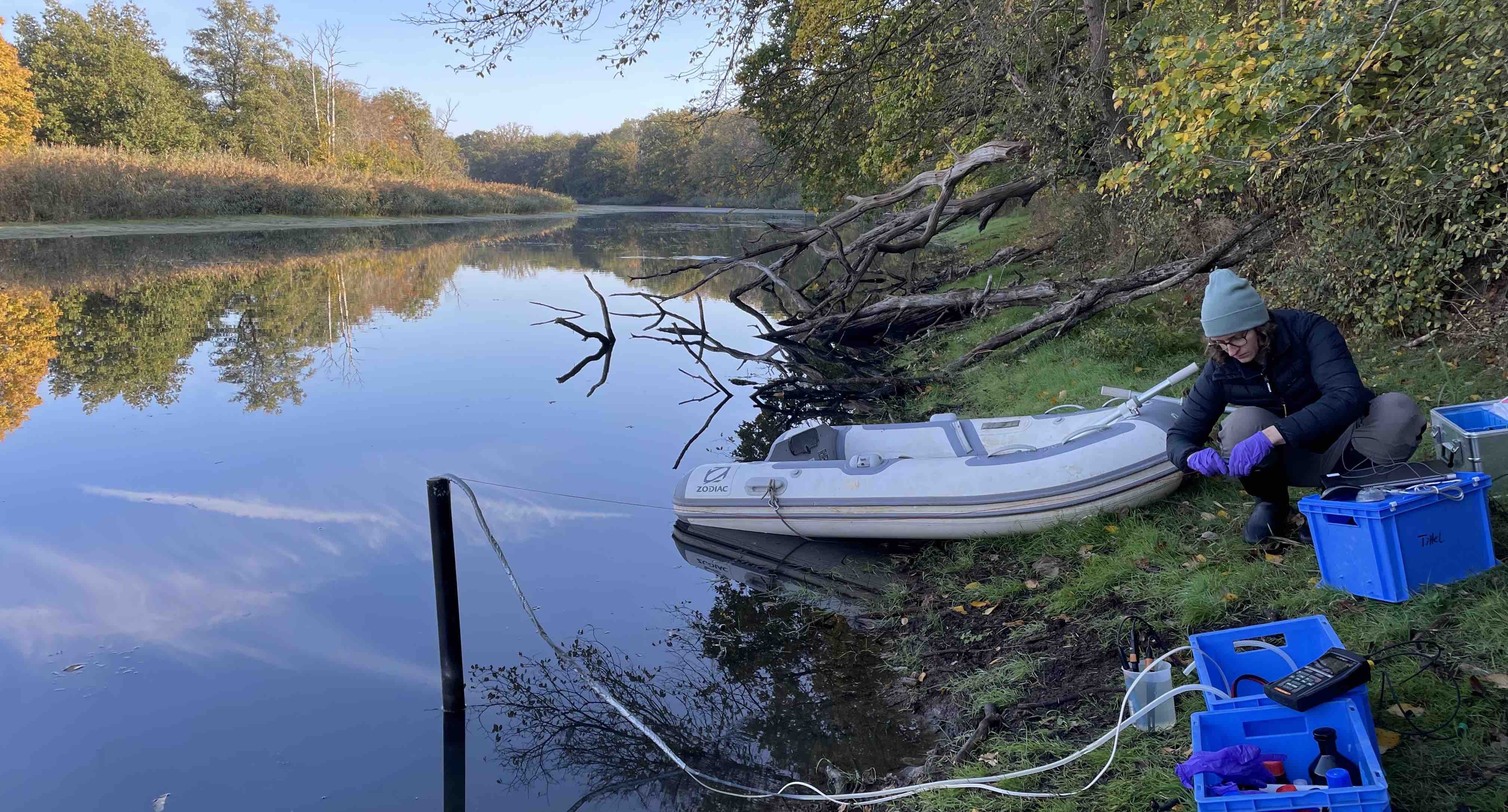Plankton Ecology
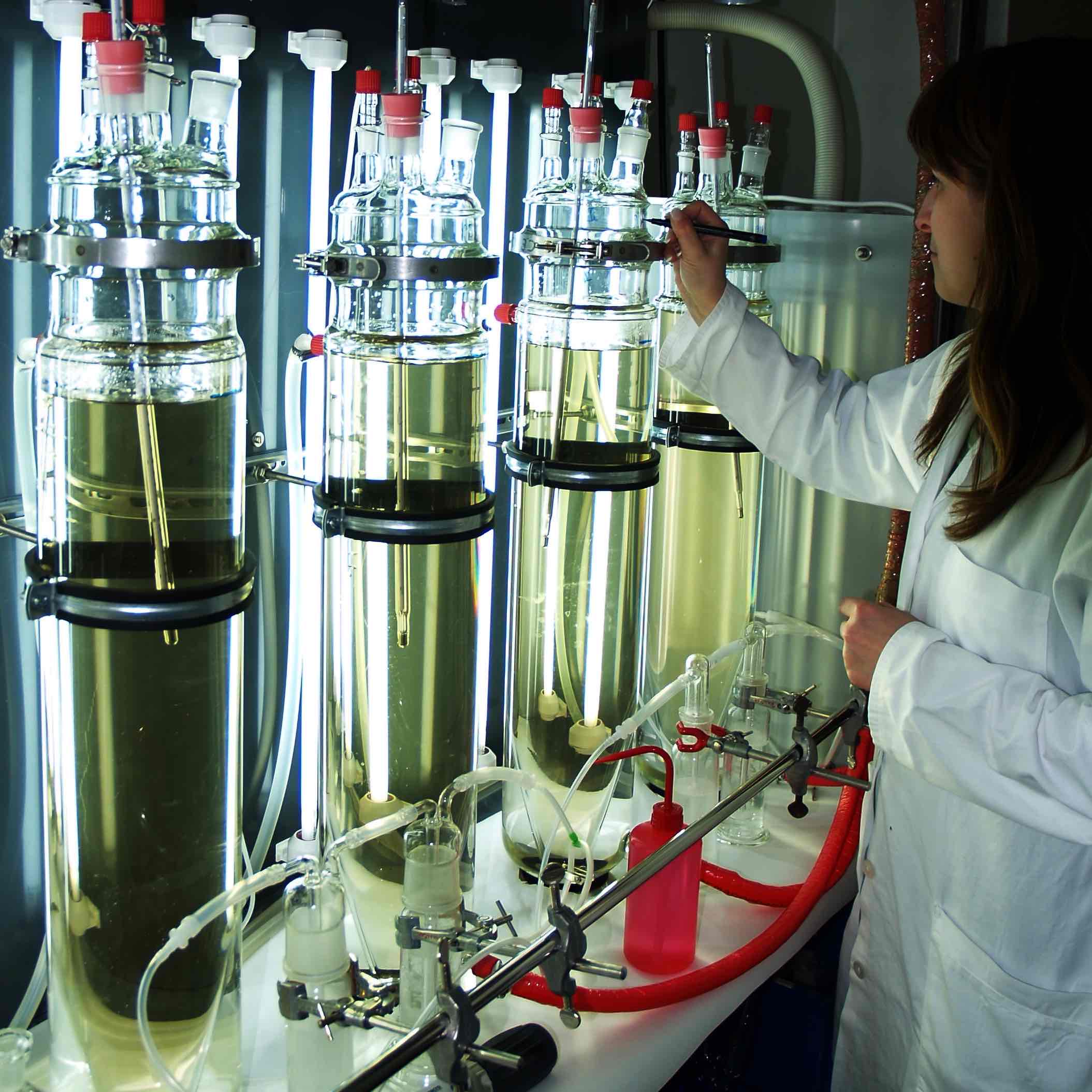
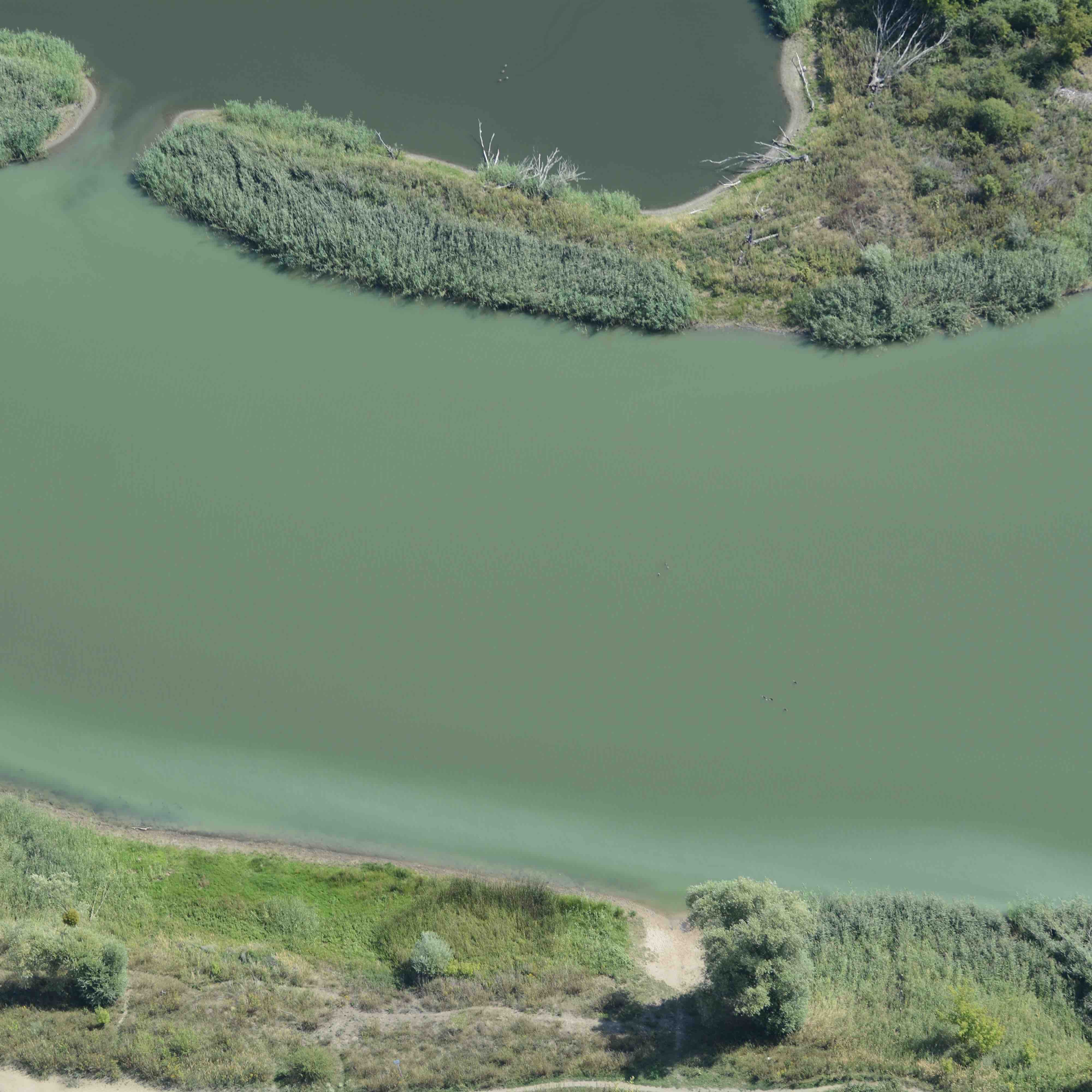
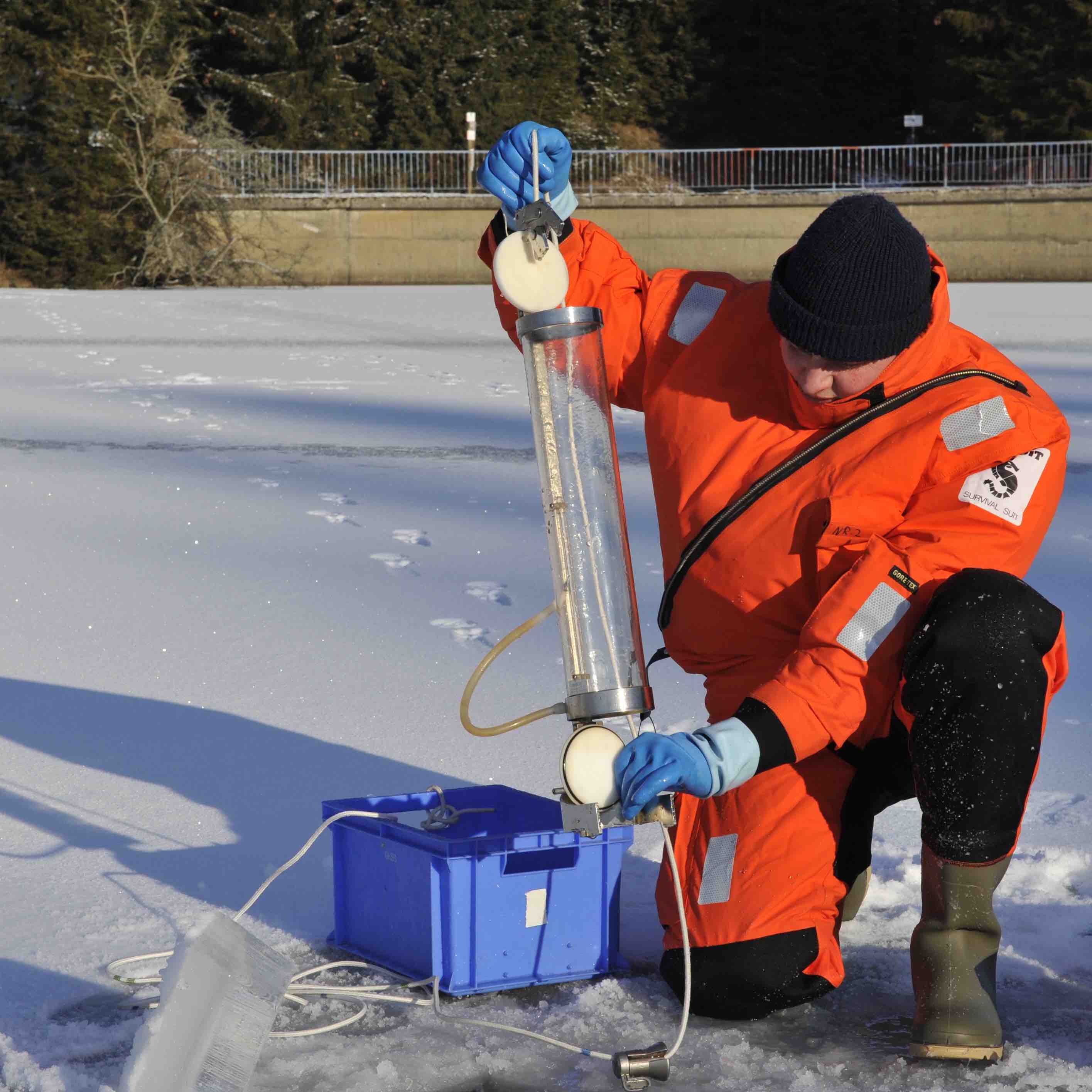
Photosynthesis removes CO2 from the atmosphere in the long term when the fixed carbon is stored in soils or sediments. Inland waters are significant carbon sinks. The sediments of lakes, rivers and reservoirs store as much organic carbon as the large basins of the oceans. Decisive for the CO2 concentration of the recent atmosphere, however, is not only the amount but also the age of the organic carbon. Radiocarbon analysis can be used to find out whether the carbon was removed from the atmosphere in recent years or thousands of years ago.
We study the transport and degradation of carbon in lakes, rivers and reservoirs. We are interested in the ages of recycled carbon and carbon buried in sediments and the mechanisms that determine its stability. We study field samples, undertake laboratory experiments, and evaluate larger data sets.
In the current project P-SPACE we are investigating the resilience of floodplain waters to drought. The floodplain water bodies differ in their hydrological connection to the main stream and to groundwater.
